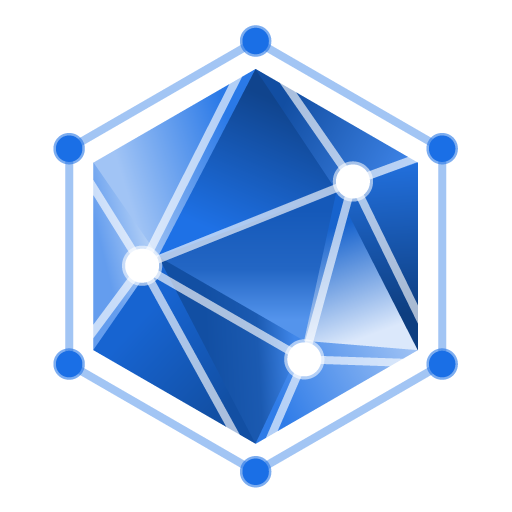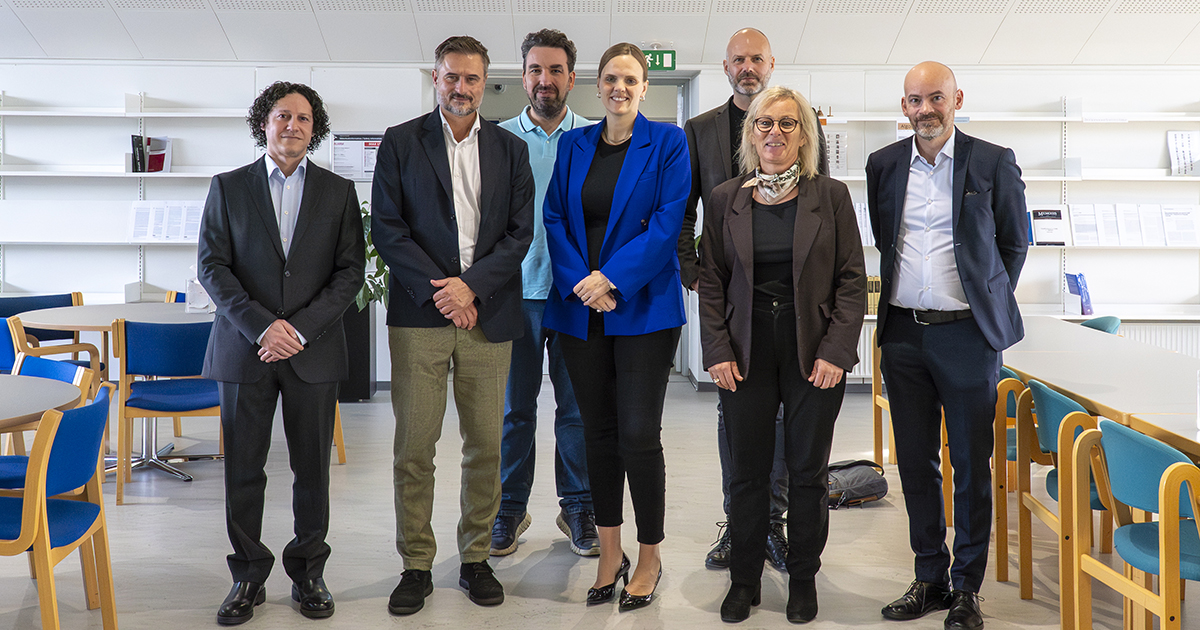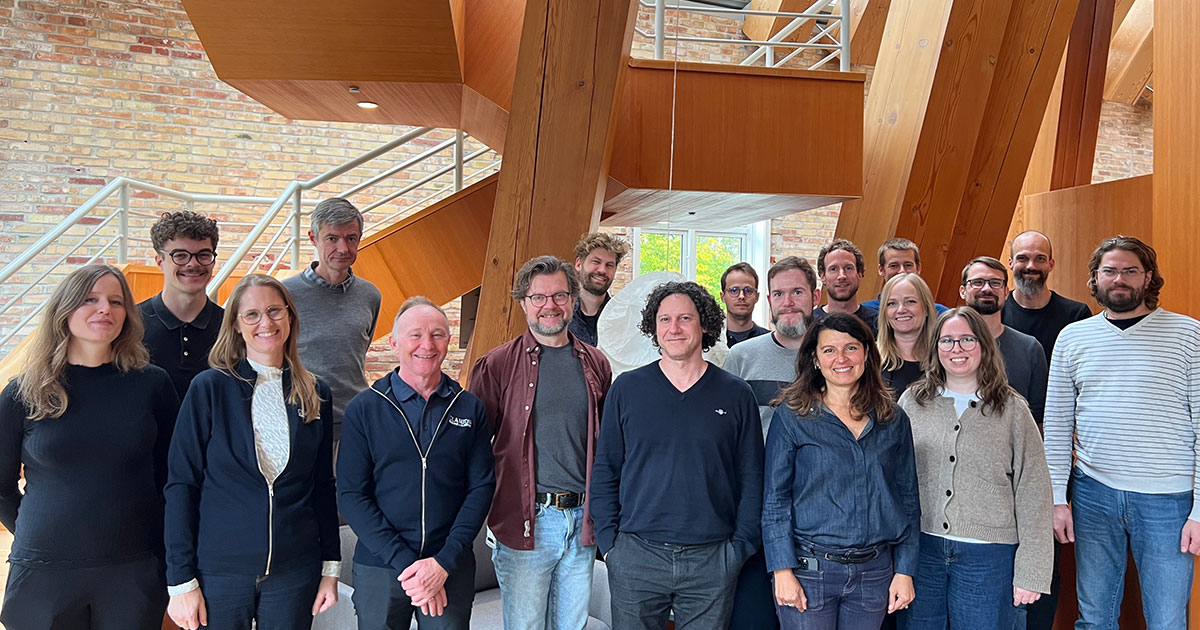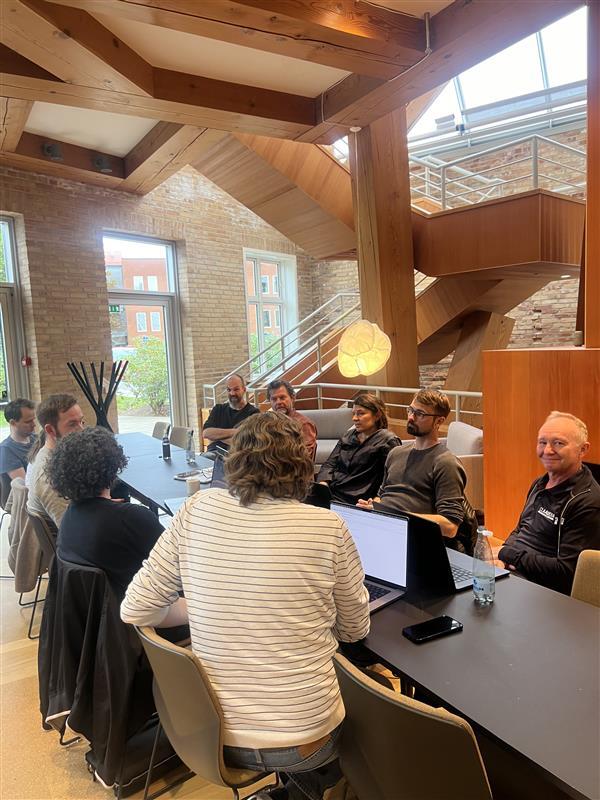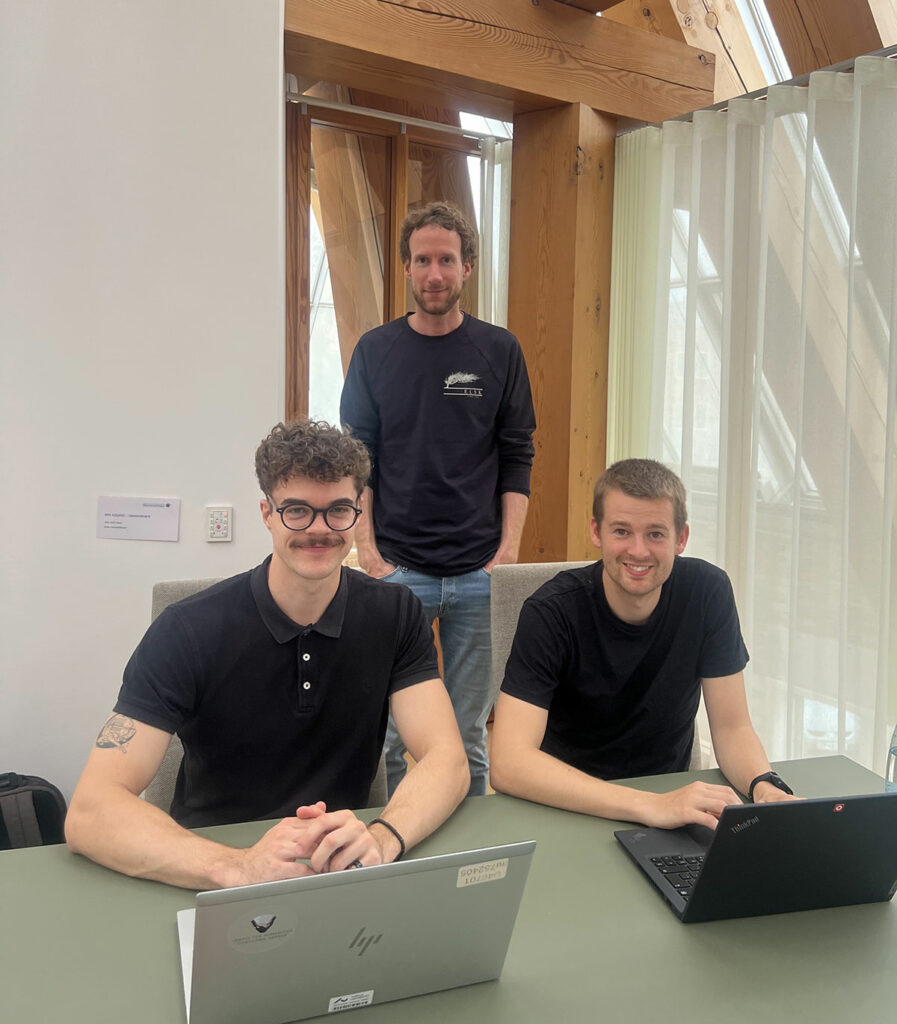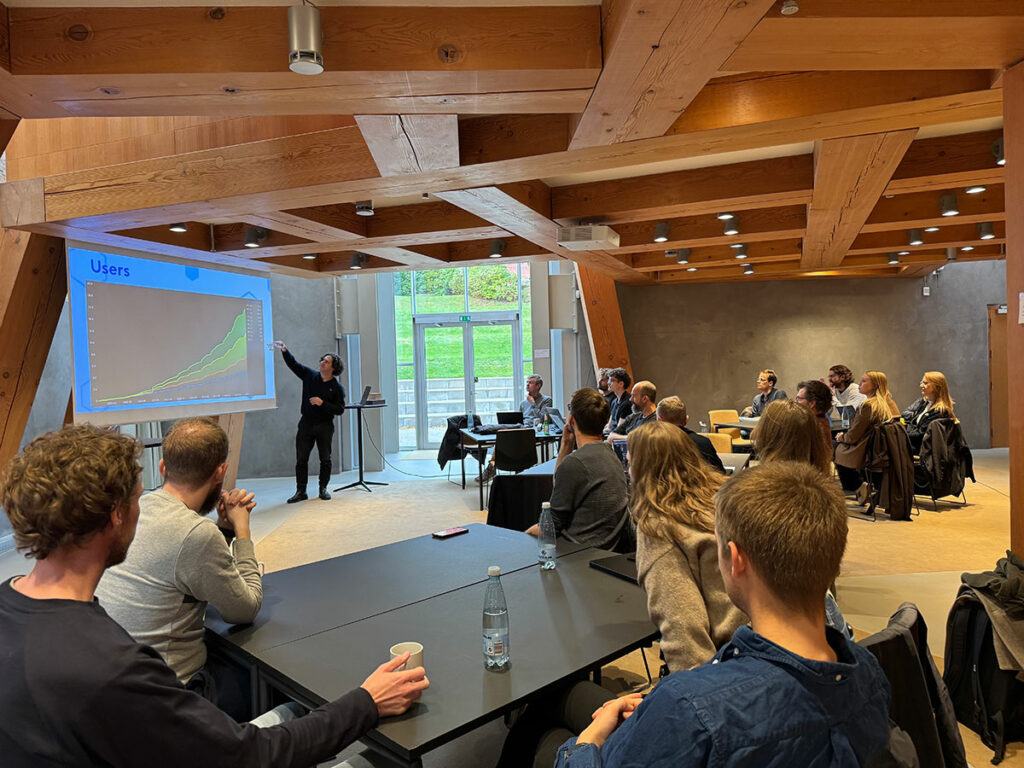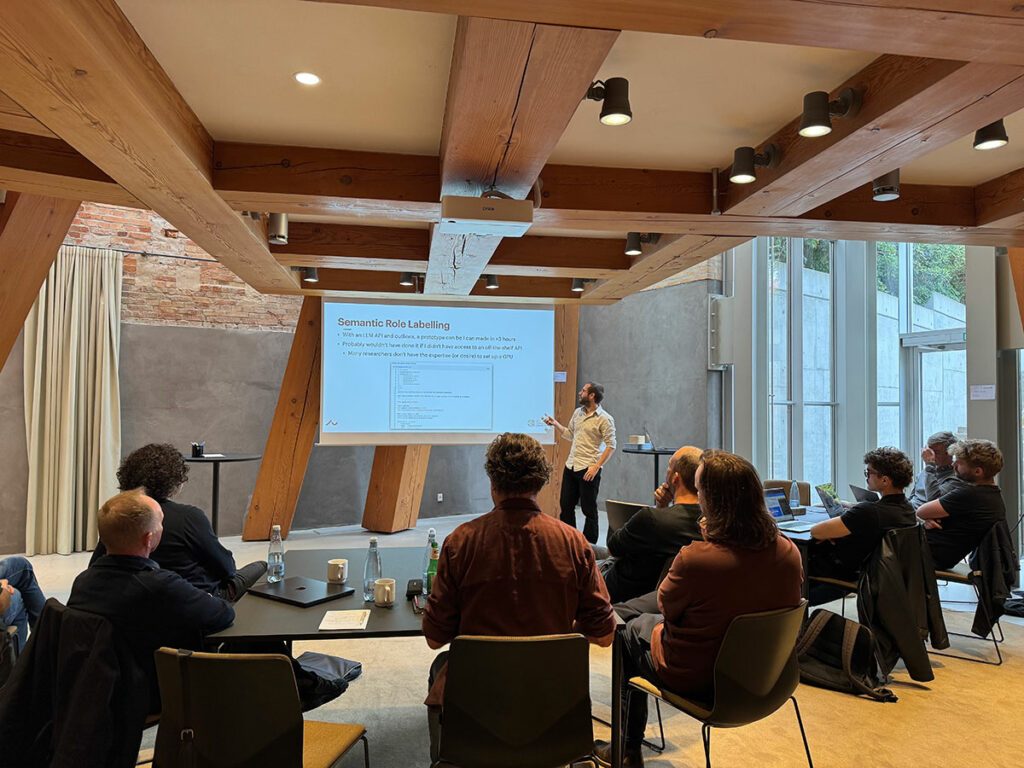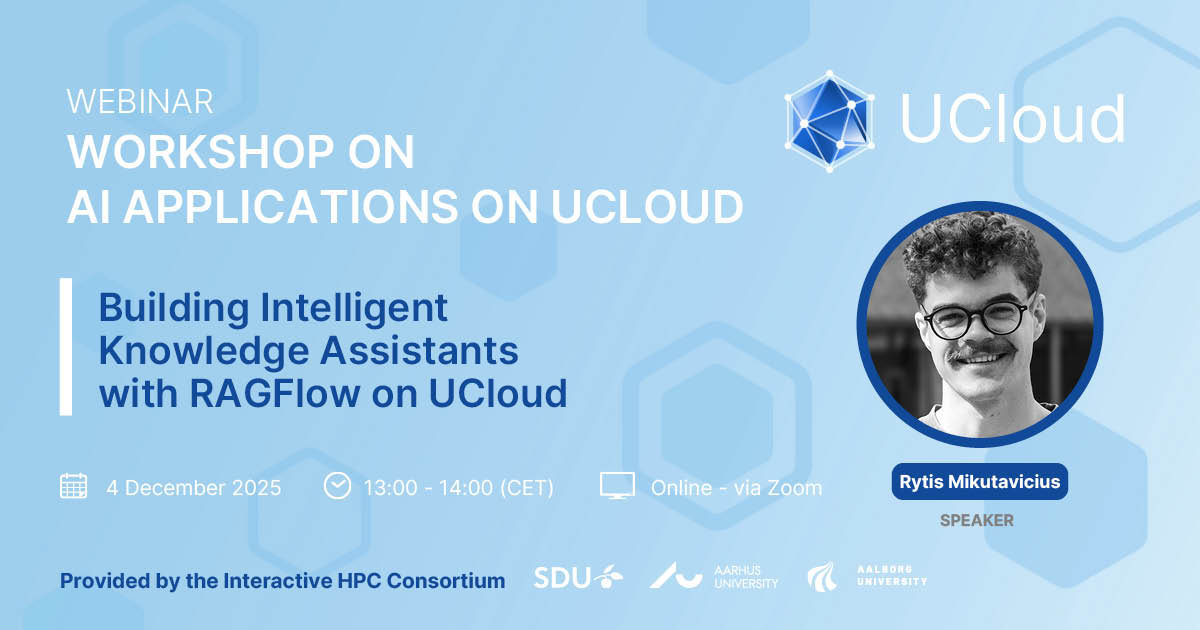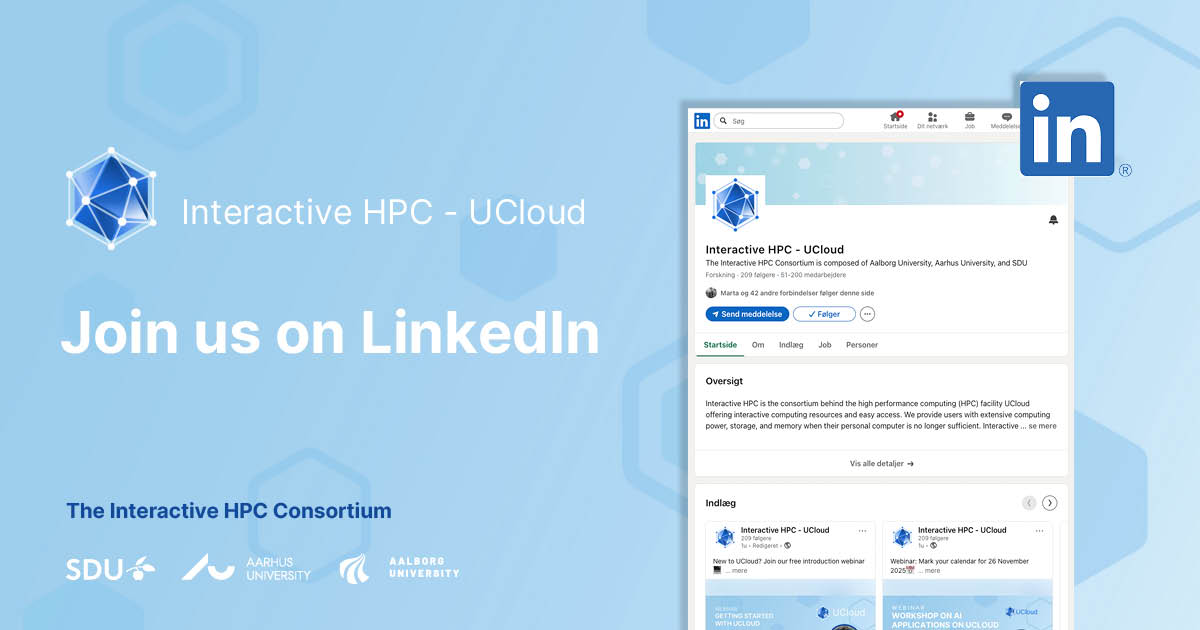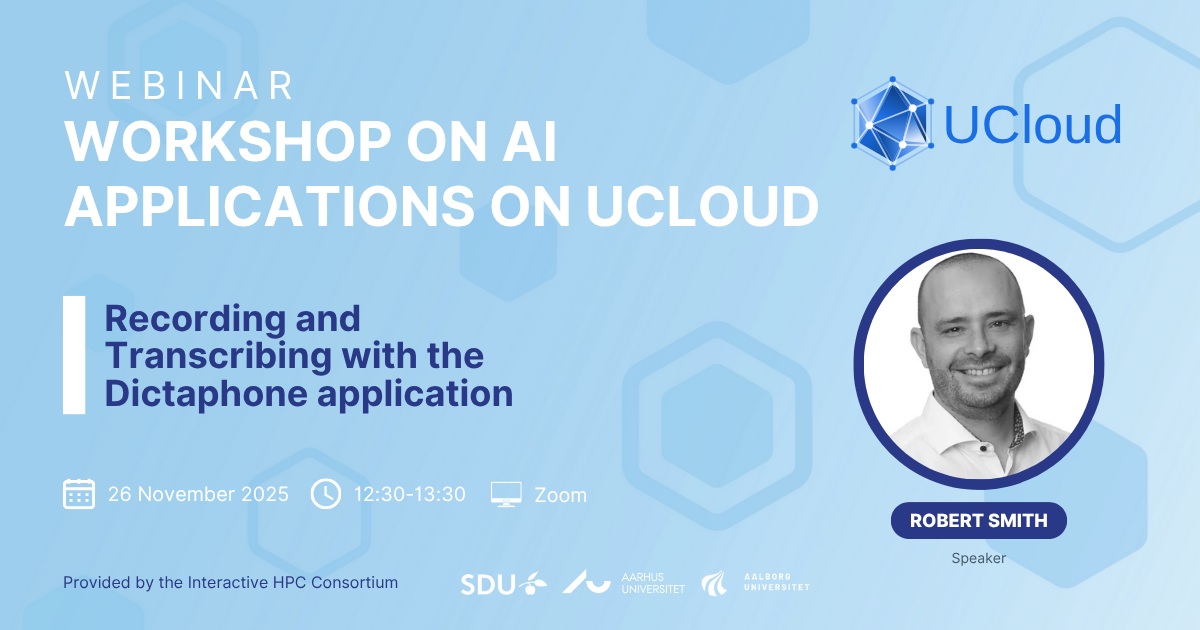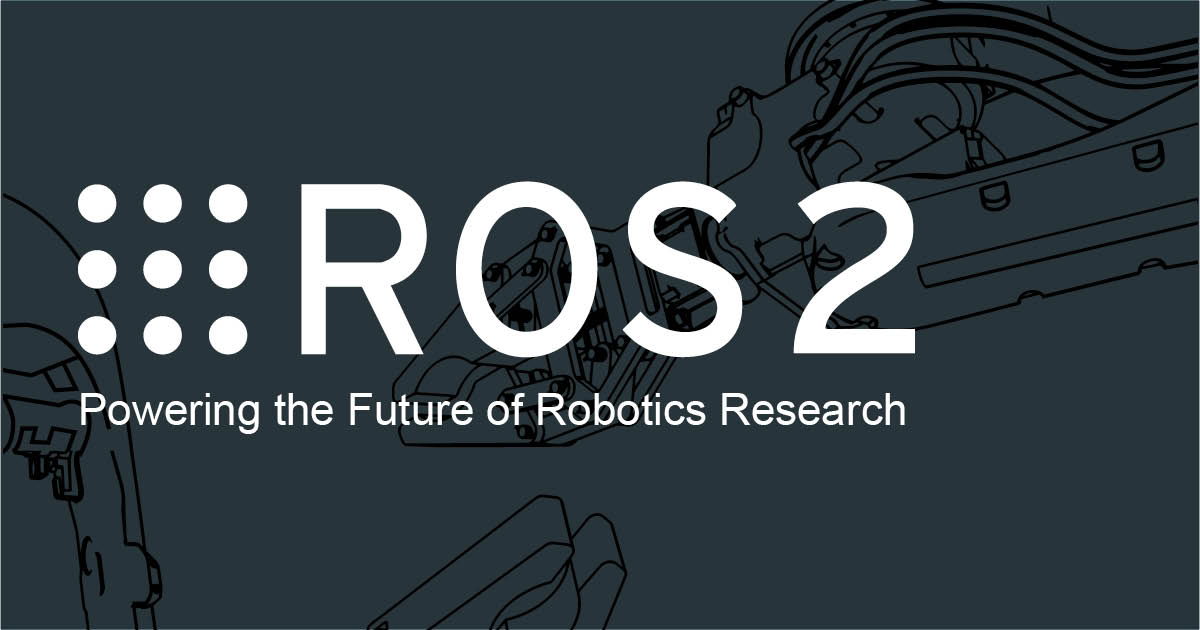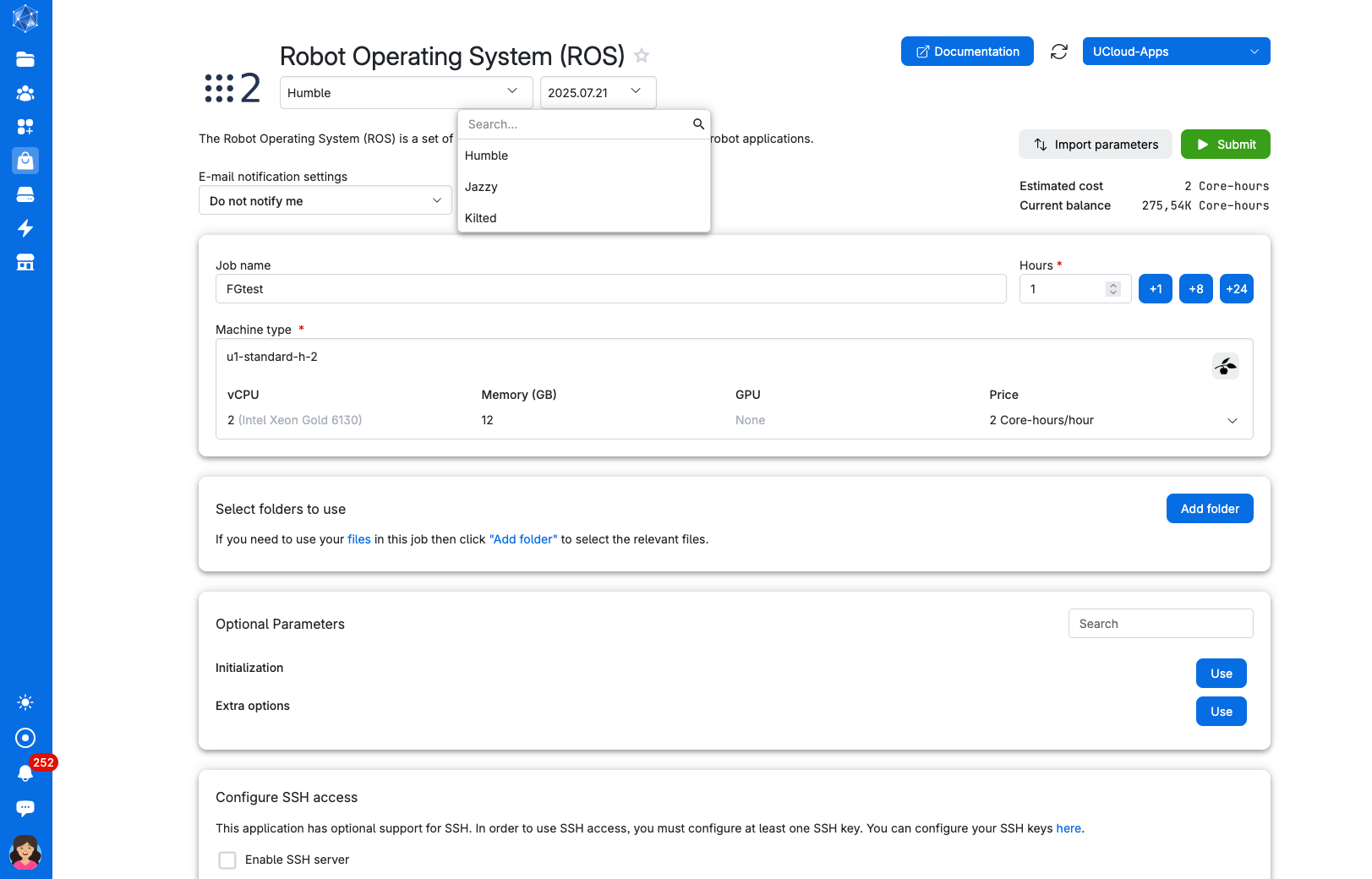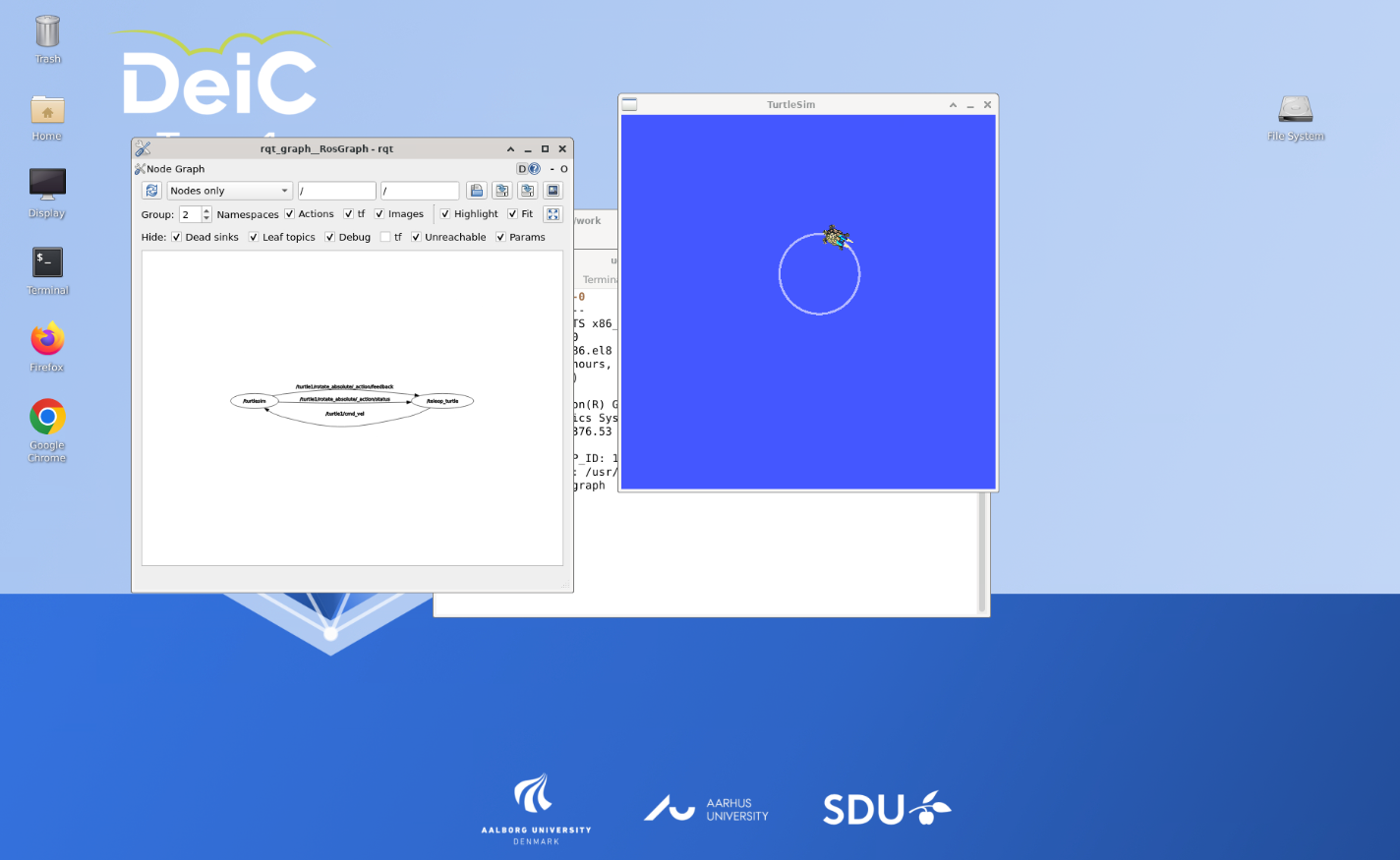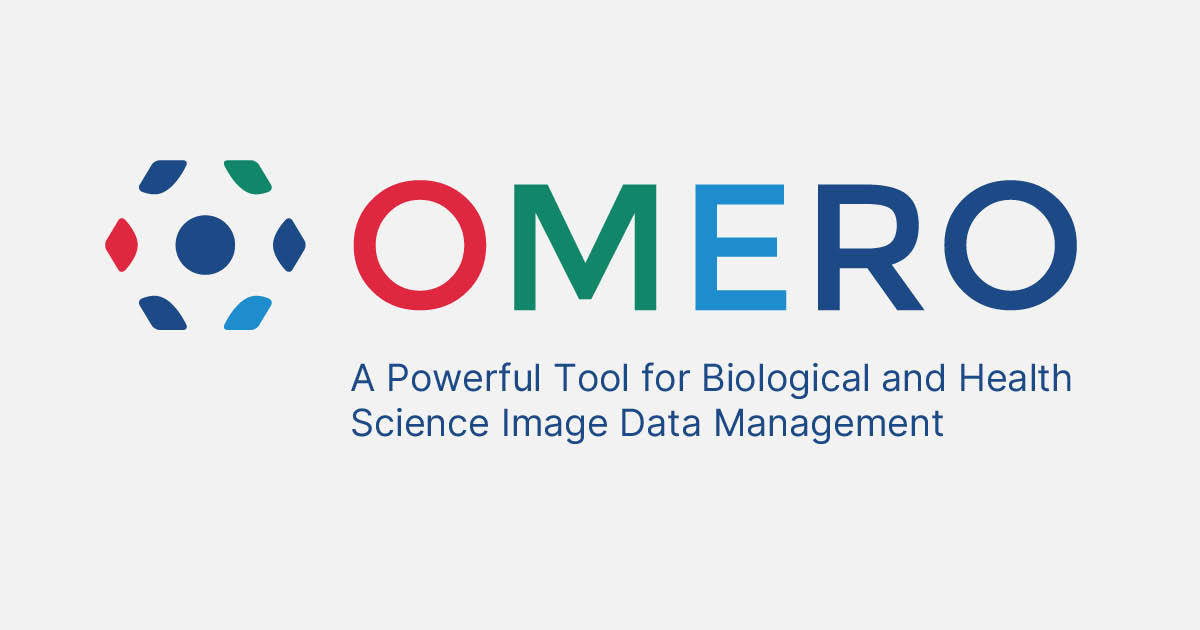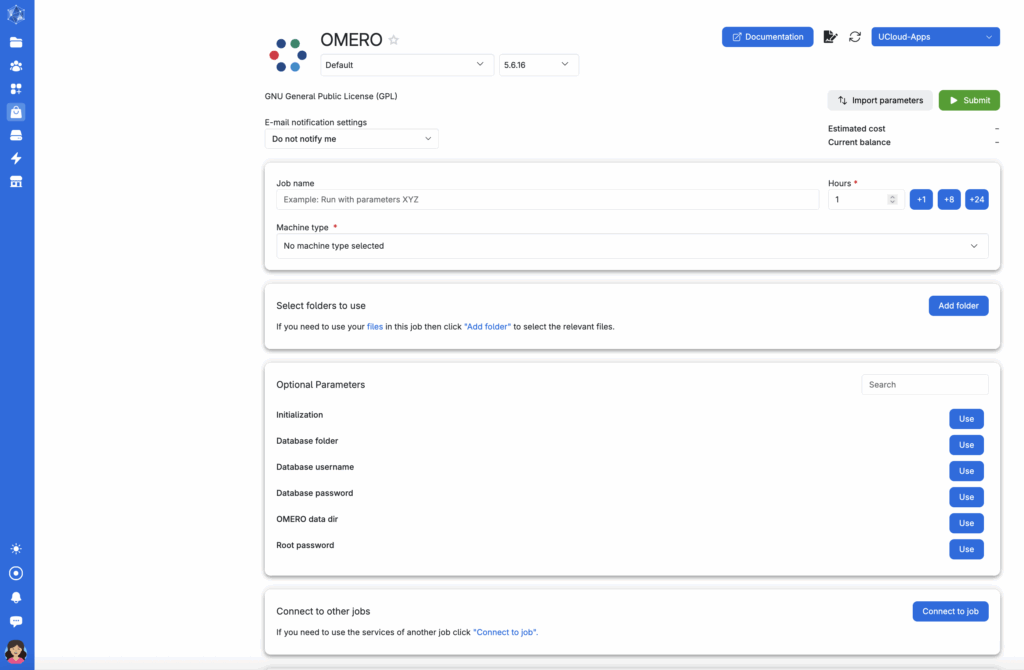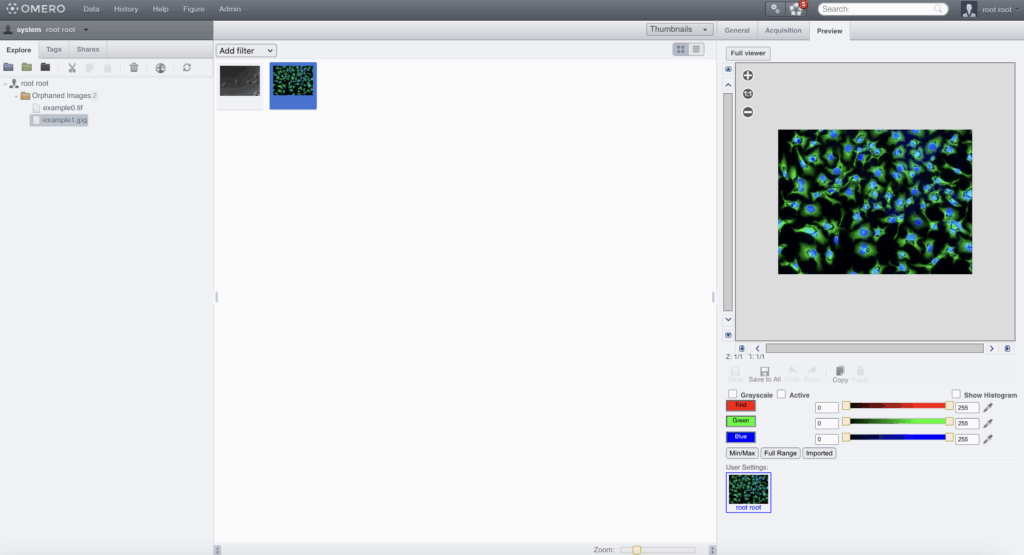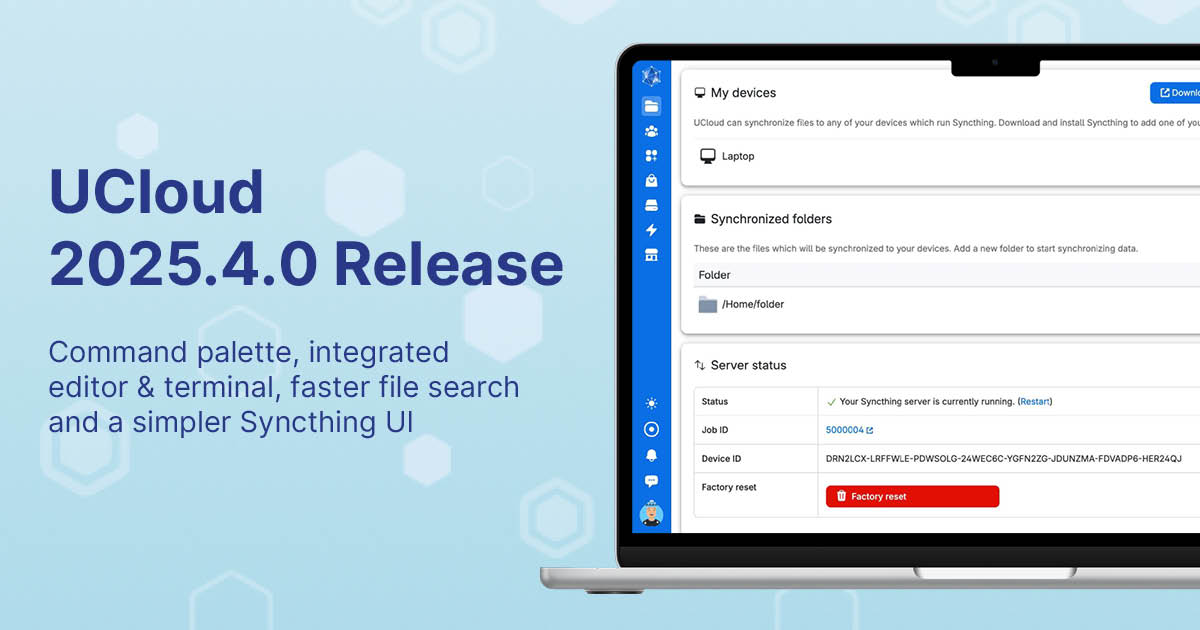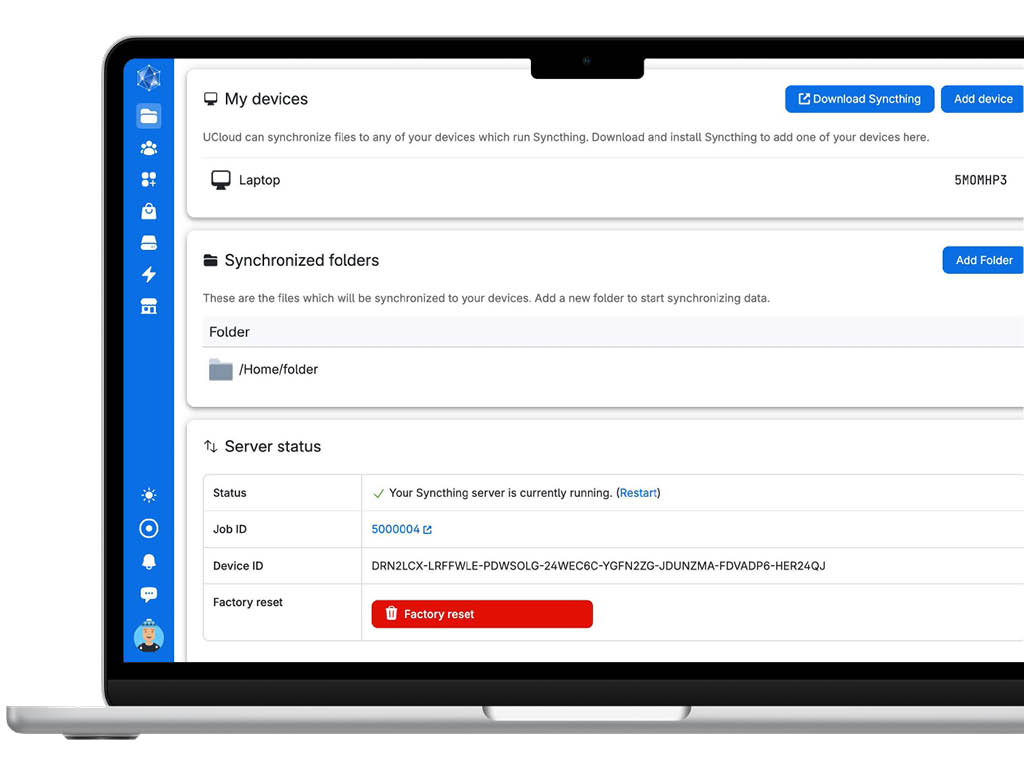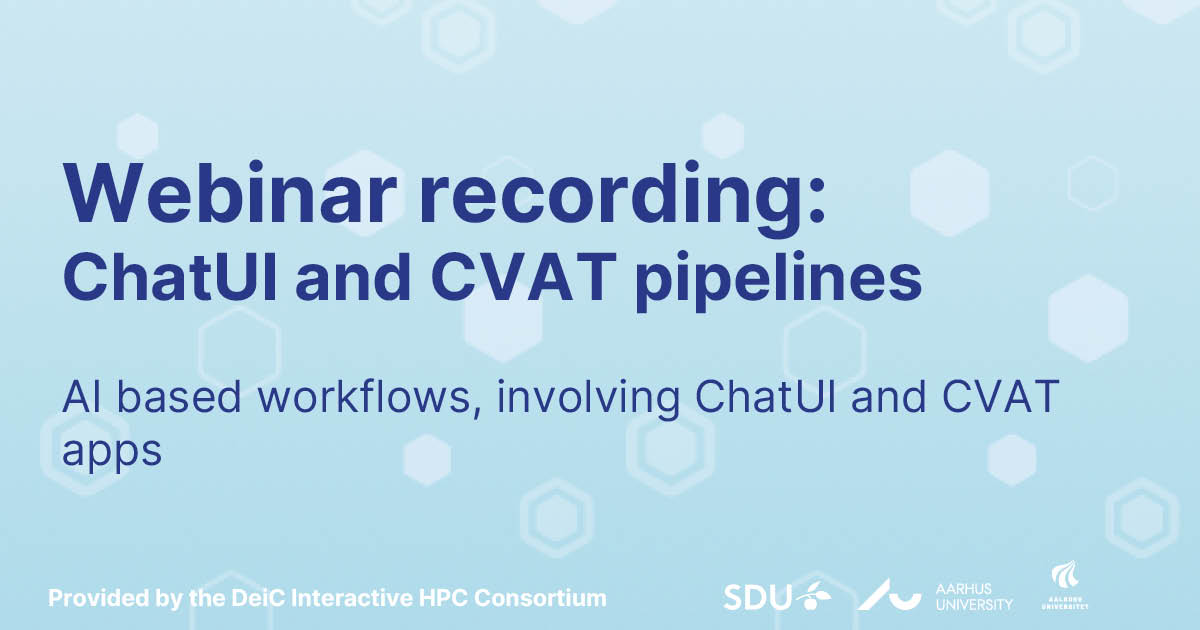Den 27. oktober besøgte digitaliseringsminister Caroline Stage Olsen Syddansk Universitet (SDU) for at høre mere om UCloud og Interactive HPC Konsortiet.
Formålet med besøget var at vise, hvordan dansk forskning bidrager til at styrke landets digitale uafhængighed og suverænitet. Institut for Matematik og Datalogi (IMADA) og SDU eScience Center ved Det Naturvidenskabelige Fakultet havde den fornøjelse at byde ministeren velkommen til SDU.
Under besøget blev ministeren introduceret til UCloud, en open-source cloud-platform, der drives af Interactive HPC Konsortiet. Platformen blev oprindeligt udviklet på SDU og har siden 2019 været tilgængelig for alle danske forskere gennem DeiC Interactive HPC. I dag står SDU, Aarhus Universitet (AU) og Aalborg Universitet (AAU) sammen bag udviklingen og driften af platformen.
Ministeren understregede, at digital suverænitet og udvikling af cloud-baserede løsninger under dansk kontrol er vigtige politiske prioriteter:
”Det er noget, vi taler om i stigende grad – hvordan vi kan blive mere uafhængige og styrke vores kontrol over den digitale infrastruktur. Det er noget af det, jeg er her i dag for at lære mere om,” sagde digitaliseringsminister Caroline Stage Olsen under besøget.
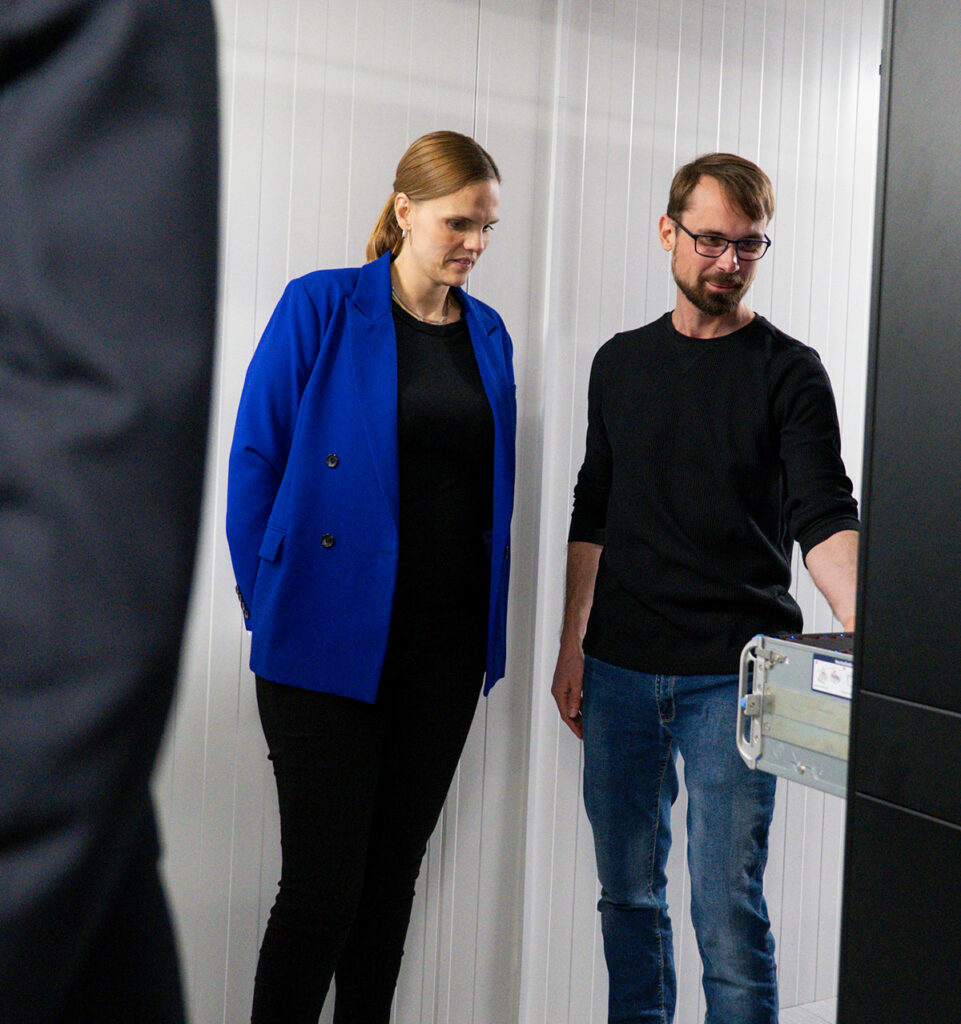
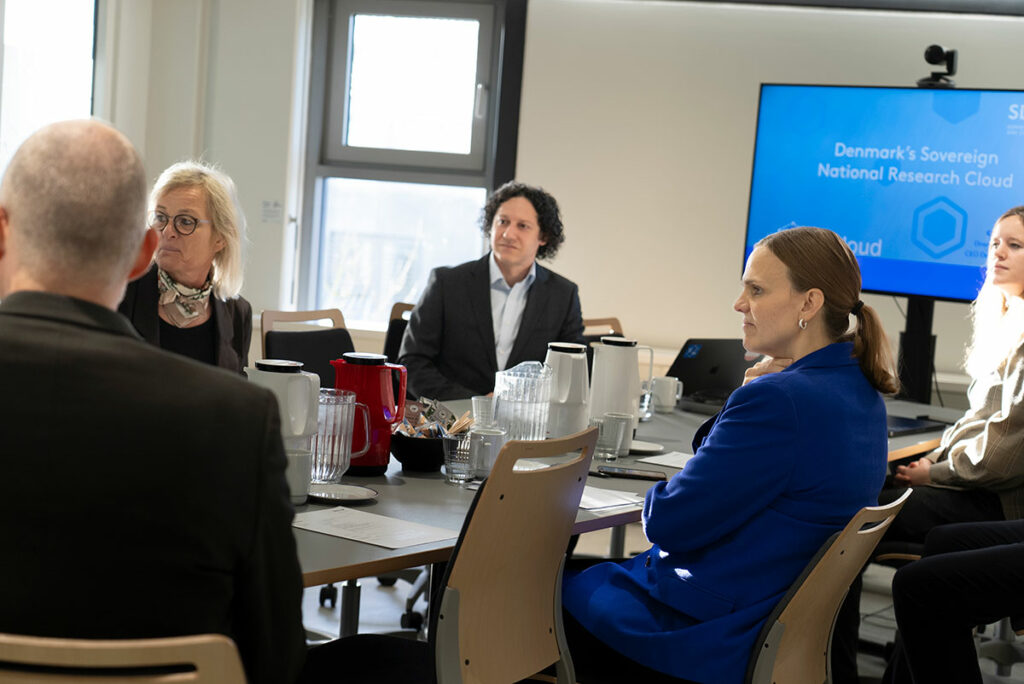
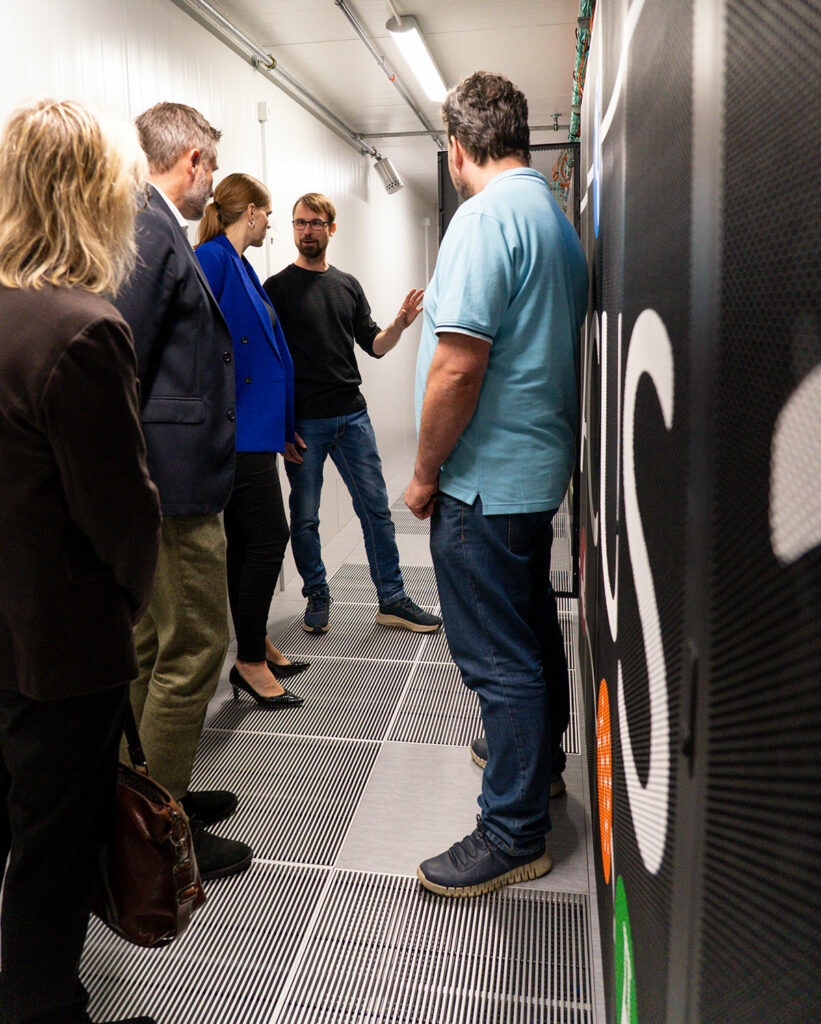
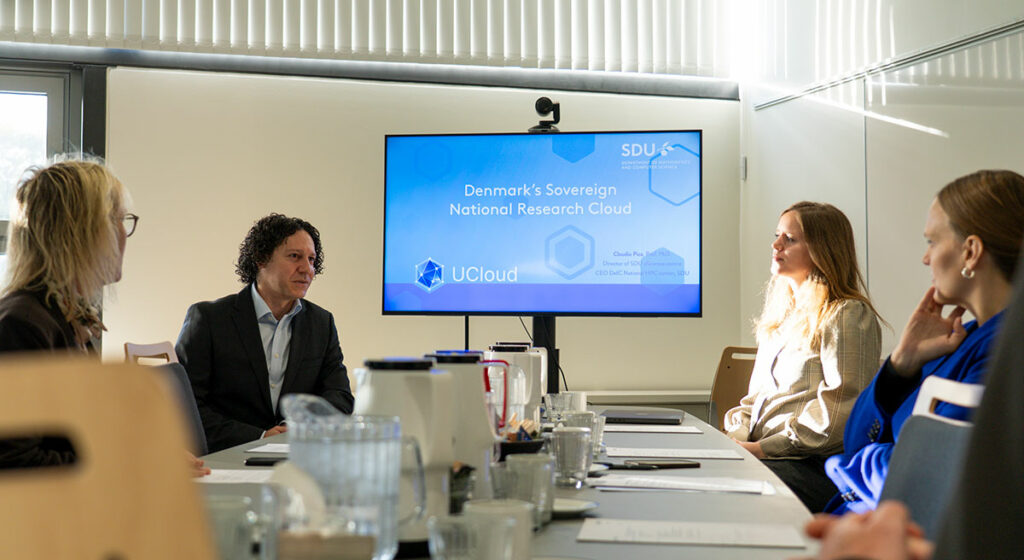
Brobygning mellem forskning og samfund
UCloud fungerer som Danmarks nationale platform for Interactive high-performance computing (HPC) og er Europas mest anvendte supercomputing-platform til forskning. Med over 18.000 brugere på tværs af universiteter, offentlige myndigheder og private virksomheder er den et tydeligt eksempel på, hvordan danskudviklede løsninger kan fremme digital selvstændighed.
”Ægte digital suverænitet kræver offentlig infrastruktur, der kan inspiceres, kontrolleres og forbedres. UCloud gør suverænitet til mere end et slogan og forvandler det til et levende, open source-fællesgode – Europas største research cloud, bygget i Danmark. Ved at investere i åbne infrastrukturer som UCloud kan vi sikre vores digitale fremtid,” sagde professor Claudio Pica, leder af SDU eScience Center.
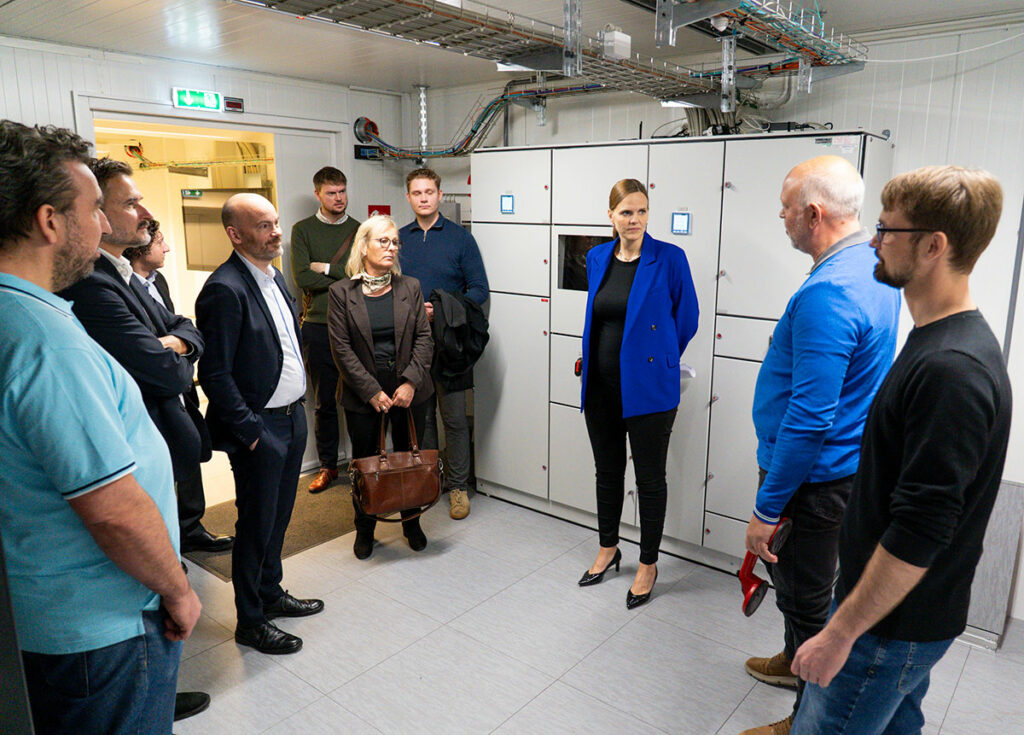
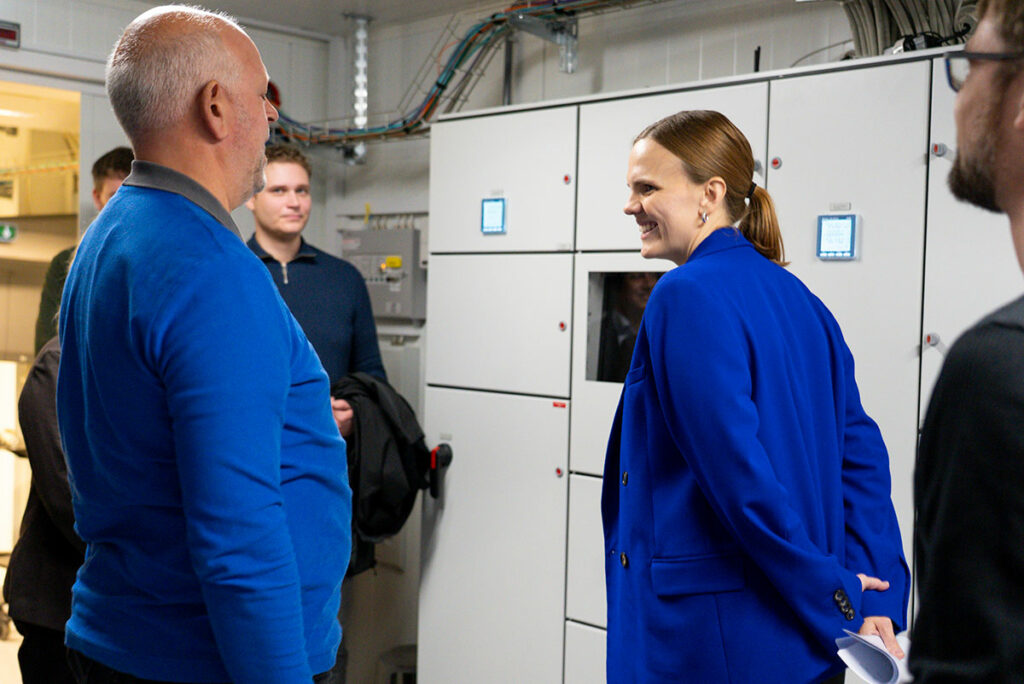
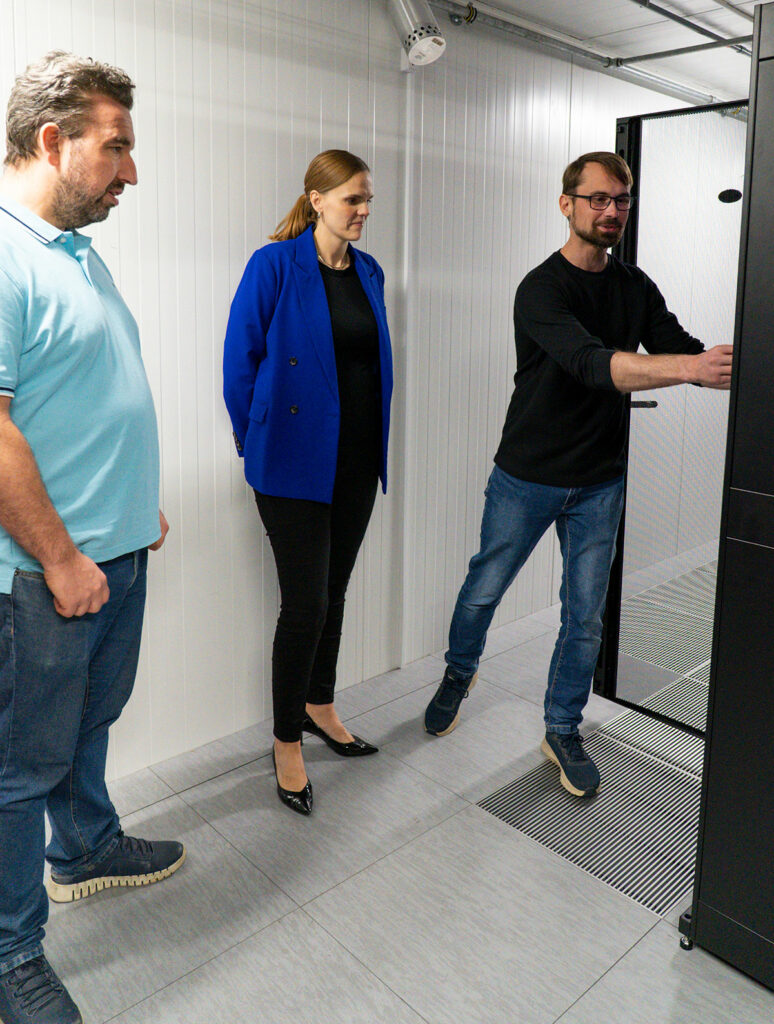
Et samfundsansvar
Besøget gav også anledning til en bredere diskussion om forskningsinstitutionernes ansvar i en tid, hvor digitalisering gennemsyrer alle dele af samfundet – fra sundhedsvæsen og uddannelse til energisektor og offentlige tjenester.
Besøget blev afsluttet med en rundvisning i SDU’s supercomputinganlæg, hvor ministeren fik præsenteret den avancerede infrastruktur, der understøtter Interactive HPC – UCloud.
Artiklen er baseret på en original historie fra SDU’s hjemmeside
